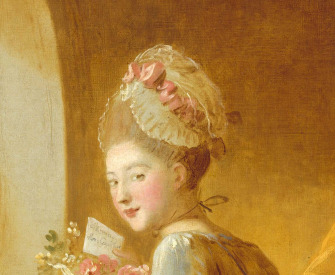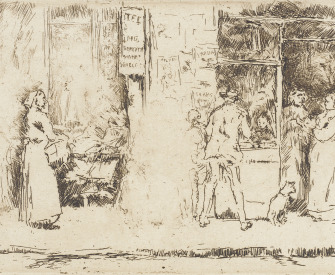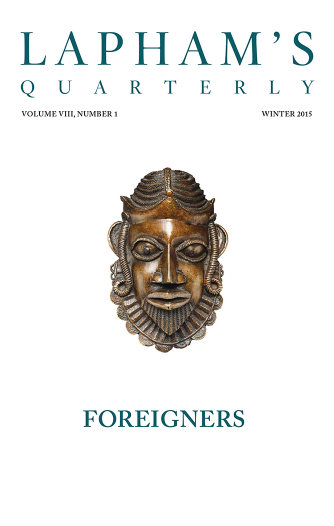I never practice, I always play.
—Wanda Landowska, 1953Command Performance
Jane Austen introduces a virtuoso.
“I assure you, Miss Woodhouse,” Mrs. Elton said to Emma, “where the waters do agree, it is quite wonderful the relief they give. In my Bath life, I have seen such instances of it! And it is so cheerful a place that it could not fail of being of use to Mr. Woodhouse’s spirits, which I understand are sometimes much depressed. And as to its recommendation to you, I fancy I need not take much pains to dwell on them. The advantages of Bath to the young are pretty generally understood. It would be a charming introduction for you, who have lived so secluded a life; and I could immediately secure you some of the best society in the place. A line from me would bring you a little host of acquaintance.”
It was as much as Emma could bear, without being impolite. The idea of her being indebted to Mrs. Elton for what was called an introduction—of her going into public under the auspices of a friend of Mrs. Elton’s—probably some vulgar, dashing widow, who, with the help of a boarder, just made a shift to live!—the dignity of Miss Woodhouse was sunk indeed!
She restrained herself, however, from any of the reproofs she could have given, and only thanked Mrs. Elton coolly. And then, to prevent further outrage and indignation, changed the subject directly.
“I do not ask whether you are musical, Mrs. Elton. Upon these occasions a lady’s character generally precedes her; and Highbury has long known that you are a superior performer.”
“Oh, no, indeed; I must protest against any such idea. A superior performer! Very far from it, I assure you: consider from how partial a quarter your information came. I am dotingly fond of music—passionately fond; and my friends say I am not entirely devoid of taste; but as to anything else, upon my honor my performance is mediocre to the last degree. You, Miss Woodhouse, I well know, play delightfully. I assure you it has been the greatest satisfaction, comfort, and delight to me, to hear what a musical society I am got into. I absolutely cannot do without music; it is a necessity of life to me; and having always been used to a very musical society, both at Maple Grove and in Bath, it would have been a most serious sacrifice. I honestly said as much to Mr. E. when he was speaking of my future home, and expressing his fears lest the retirement of it should be disagreeable; and the inferiority of the house, too—knowing what I had been accustomed to—of course he was not wholly without apprehension. When he was speaking of it in that way, I honestly said that the world I could give up—parties, balls, plays—for I had no fear of retirement. Blessed with so many resources within myself, the world was not necessary to me. I could do very well without it. To those who had no resources, it was a different thing; but my resources made me quite independent. And as to smaller-sized rooms than I had been used to, I really could not give it a thought. I hoped I was perfectly equal to any sacrifice of that description. Certainly, I had been accustomed to every luxury at Maple Grove; but I did assure him that two carriages were not necessary to my happiness, nor were spacious apartments. ‘But,’ said I, ‘to be quite honest, I do not think I can live without something of a musical society. I condition for nothing else; but without music, life would be a blank to me.’ ”
“We cannot suppose,” said Emma, smiling, “that Mr. Elton would hesitate to assure you of there being a very musical society in Highbury; and I hope you will not find he has outstepped the truth more than may be pardoned, in consideration of the motive.”

Jazz singer Billie Holiday, dubbed “Lady Day” by tenor saxophonist Lester Young. © Universal History Archive / UIG / Bridgeman Images.
“No, indeed, I have no doubts at all on that head. I am delighted to find myself in such a circle. I hope we shall have many sweet little concerts together. I think, Miss Woodhouse, you and I must establish a musical club, and have regular weekly meetings at your house or ours. Will not it be a good plan? If we exert ourselves, I think we shall not be long in want of allies. Something of that nature would be particularly desirable for me, as an inducement to keep me in practice; for married women, you know—there is a sad story against them, in general. They are but too apt to give up music.”
“But you, who are so extremely fond of it—there can be no danger, surely.”
“I should hope not; but really when I look around among my acquaintance, I tremble. Selina has entirely given up music—never touches the instrument, though she played sweetly. And the same may be said of Mrs. Jeffereys—Clara Partridge that was—and of the two Milmans, now Mrs. Bird and Mrs. James Cooper; and of more than I can enumerate. Upon my word, it is enough to put one in a fright. I used to be quite angry with Selina; but, really, I begin now to comprehend that a married woman has many things to call her attention. I believe I was half an hour this morning shut up with my housekeeper.”
“But everything of that kind,” said Emma, “will soon be in so regular a train—”
“Well,” said Mrs. Elton, laughing, “we shall see.”
Emma, finding her so determined upon neglecting her music, had nothing more to say; and after a moment’s pause, Mrs. Elton chose another subject.

Jane Austen
From Emma. “Aunt Jane began her day with music—for which I conclude she had a natural taste,” wrote Austen’s niece Caroline in an 1867 remembrance, “tho’ she had no one to teach; was never induced (as I have heard) to play in company; and none of her family cared much for it.” The author, who would sing and play the pianoforte before breakfast so as not to disturb others in her household, collected sheet music and copied favorites into her notebooks, leaving behind more than six hundred pieces when she died in 1817.


